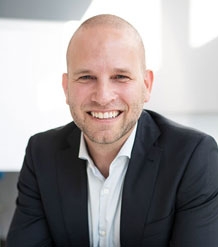Rising demand for aid
The war between Russia and Ukraine has re-focused the world’s attention on the plight of refugees.
Ensuring that aid gets to the people that need it is a complex and often dangerous task, with many moving parts. And while the demand for aid is rising, it remains significantly under-resourced.
Unfortunately, international humanitarian operations (IHOs) are not immune to operational failure. However, rather than systems and processes, it is often people leadership that sits at the heart of impaired effectiveness.
Why study leadership in humanitarian operations?
My involvement in this topic goes back several years.
Like me, many of you will have been horrified by the haunting images of the 3-year-old Syrian refugee, Alan Kurdi, who drowned in the Mediterranean in September 2015.
I knew then that I wanted to help provide more effective, and efficient, humanitarian aid.
I started to discuss this with Maria Besiou, Professor of Humanitarian Logistics at KLU in Germany, as well as my PhD student, Mojtaba Salem, who had a particular interest in this field.
We were drawn to the human element of humanitarian operations which can give rise to conflict, misunderstanding, and inefficiencies. And we wanted to understand how leadership styles could affect how effective those operations are. This has been a largely omitted perspective in the field of operations, which tends to take a rather mechanistic view.
The research
We interviewed 125 humanitarian field office workers – 52% involved in armed conflict, 42% working on disaster recovery projects, and 30% on development projects.
These workers work in highly pressurised environments. On the one hand, they are dealing with human tragedy, high emotions and overwhelm. And on the other, they face shortages, lack of funding, difficulty recruiting and negotiations with people in power.
As we progressed our research, some consistent themes emerged.
We found that the kind of people who were in project management roles within humanitarian organisations – let’s call them Group A – tend to be well-educated, highly paid, liberal expatriates, usually from the Global North and often former military personnel.
By comparison, the local teams – let’s call them Group B – from the Global South tend to be less educated, often devout Muslims, from large families and not as liberal.
Group A brings much knowledge to the room in terms of how to organise operations and keep it synchronised. Group B also has a lot of knowledge about the situation on the ground, such as the most reliable drivers or which roads are the dangerous.
As a humanitarian field officer leader, the challenge is to lead these two groups together.
One identity?
The problem is that a common recipe for leadership is to tell your team that you are all part of one group – a “super identity” – and that you should work together and co-operate.
But we found that where there are clearly demarked groups, you cannot win with a narrative of “we are all part of one organisation” because it just does not resonate with the reality of people.
Ensuing lack of co-operation can compromise the whole mission. For instance, the IHO might choose truck drivers that are not reliable, or they might go into rebellion territory, jeopardising their team.
The alternative – intergroup leadership
We concluded that a better style of leadership would be to recognise that each group is a different entity, but that in order for one group to be the best version of itself, they need the other. And vice versa.
When we tested this among humanitarian workers in the field, we found that the most effective leaders:
- Advocate for co-operation between the groups
- Role model that behaviour
- Express in their rhetoric the need for inter-group co-operation
Using the research in practice
Since we carried out the research, we’ve carried out workshops with humanitarian organisations to talk about the benefits of inter-group leadership. We have also set up a platform – www.riloha.org – to bring together academics working in this field.
Our next research project investigates why autocratic leadership doesn’t work in humanitarian aid conflicts. It is an interesting question to ponder because many are quick to adopt the military type of command-and-control leadership in crises situations. Yet, it is that type of leadership that clashes with the need for autonomy of the highly intrinsically motivated humanitarian aid workers.
Our findings on intergroup leadership are also relevant to other, similar organisations, where there are silos, and it is hard to merge identities under one roof. For example, car manufacturers are often separate but tightly integrated with their suppliers. They too need to work together cooperatively in order to ensure competitiveness.
A final word about the future. Looking ahead, we anticipate that when supra-institutions such as the EU, the UN and NATO evolve, they will have to re-invent themselves or structure themselves differently. They won’t succeed with a narrative where everyone is part of one identity. Rather, they will need to understand how their ties with other groups make them the best version of who they aspire to be.
This will also demand a new kind of intergroup leadership. The beauty of Europe is not that we are all the same, but that we are all different and yet will thrive only when we work well with each other.
Niels’ research on intergroup leadership in humanitarian organizations is available HERE and find his University of Exeter profile HERE.
Author
Professor Niels Van Quaquebeke is a Distinguished Research Professor at the University of Exeter Business School.
is a Distinguished Research Professor at the University of Exeter Business School.


